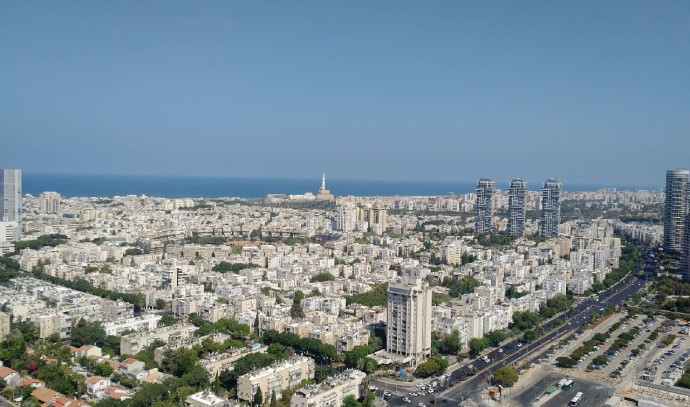As a result of the war, foreign residents and new immigrants have shown interest in the local real estate market. Below is a summary of the main tax implications that may be of interest.
The Israeli Real Estate Taxation Law imposes two types of tax on taxpayers: Appreciation tax and purchase tax. The law is a territorial law and applies to real estate located in the State of Israel (including Judea and Samaria) and to Israeli citizens.
Tax implications when selling a residential apartment in Israel
In accordance with legislative law and case laws, a “residential apartment” is an apartment that is lawfully used for residential purposes according to the planning and building laws or that is intended for residential use according to its nature, provided that additional conditions are met.
Accordingly, when selling a residential apartment, the seller will be charged appreciation tax on the gain created by its sale. However, there are several cases in which the legislature sought to benefit taxpayers selling their apartment, by granting exemptions and/or reliefs prescribed by law, as detailed below.
Exemption for a single residential apartment
In accordance with the law, an Israeli resident who sells a residential apartment that meets the definition of a “qualifying residential apartment,” which is in fact an apartment used mainly for residential purposes during at least one of the following periods: (1) four-fifths of the period for which the gain is calculated; (2) the four years preceding its sale; will enjoy an exemption at the time of its sale if the following conditions are met: (1) the apartment being sold is the only apartment of the seller’s family unit in Israel; (2) the seller held it for at least 18 months from the date it became a “residential apartment”; (3) for the 18 months prior to the aforesaid sale, no other residential apartment was sold by them.
It should be noted that the exemption granted will apply only to the part of the value that does not exceed the ceiling limit set by the law, which as of 2024 stands at NIS 5,008,000. It should also be noted that in relation to the sale of a residential apartment that includes additional building rights, tax may be charged at the regular rates for the part attributed to those additional rights (as detailed below).
We recommend examining the availability of this exemption to a foreign resident who does not own a residential apartment in their country of residence. To be entitled to this exemption, the foreign resident will be required to procure the relevant documentation from the tax authorities in their country of residence.
The calculation of the Beneficial Linear Tax rate when selling a qualifying residential apartment applies also to foreign residents
According to the law, it was determined that an individual (including a foreign resident) who sells a “qualifying residential apartment” that is not their only apartment, will benefit from a beneficial linear calculation, as follows:
A gain that accrued from the date of purchase until 1.1.2014 will be exempt from tax and a gain from the aforesaid date until the date of sale will be charged appreciation tax at a rate of 25% (the Beneficial Linear Tax).
In accordance with a recent memorandum of law (not yet approved), the legislature’s intention is to reduce the Beneficial Linear Tax’s advantage.
Tax implications when purchasing a residential apartment in Israel by a foreign resident
The law stipulates that when a foreign resident purchases a single apartment, no beneficial purchase tax will apply. Instead, the gradual tax relevant to an additional residential apartment will be (for the period from 16.1.2024 to 15.1.2025), whereby a rate of 8% to be charged up to the value of NIS 6,055,070 and on the part of the value exceeding the said amount, the buyer will be charged at the rate of 10%.
Following the amendment of the Economic Efficiency Law, the purchase of a “shell apartment” (without finishing and interior work) will be considered a purchase of a residential apartment.
Reliefs when purchasing a residential apartment by an Israeli resident (including a veteran returning resident)
Benefited Purchase Tax rates will apply on a single apartment acquired by an Israeli resident (who does not own any other apartment), or in relation to the purchase of an alternative apartment. In addition, those reduced tax rates will apply on the purchase of a single apartment, by a single purchaser who is a veteran returning resident, as well as to those who, within two years of the purchase of the apartment, became Israeli residents for the first time.
Single Residential Apartments (January 16 – January 15, 2025) purchase rates
On the portion of the value up to NIS 1,978,745 – 0%; Over NIS 1,978,145 to NIS 2,347,040 – 3.5%; Over NIS 2,347,040 to NIS 6,055,070 – 5%; Over NIS 6,055,070 to NIS 20,183,565 – 8%; On the portion of the value exceeding NIS 20,183,565 – 10%.
Purchase tax relief for immigrants
The Purchase Tax Regulations stipulate that an “immigrant” is a person who entered Israel after 28.2.1963, holding a visa and/or certificate and/or license. Accordingly, it was determined that an immigrant will be entitled to purchase tax relief during the period beginning in the year before immigrating to Israel and ending seven years after his immigration, when purchasing one of the following:
(1) A residential apartment that will serve as his residence or an apartment that will serve the immigrant for both residential and business purposes.
(2) A business, including an agricultural farm, to be used for a business in which the immigrant or his relative will work.
In the period from 16.1.2024 to 15.1.2025, an immigrant who is eligible for the benefit will be charged according to the following grades: Up to a value of NIS 1,988,090, a purchase tax of 0.5% will apply, and for the part of the value exceeding this amount, the immigrant will be charged purchase tax at a rate of 5%.
Tax implications in a transaction of a “right in real estate” that will apply to individuals
Appreciation tax: As a rule, when selling a right in real estate that does not meet the definition of a “residential apartment,” the seller will be charged appreciation tax at the following rates: a gain attributed to the period as of the date of purchase until 7.11.2001 will be charged appreciation tax at a rate of 47%, a gain attributed to the period from 7.11.2001 until 1.1.2012 will be charged appreciation tax at the rate of 20%, and a gain attributed to the period from 1.1.2012 until the date of sale will be charged appreciation tax at a rate of 25%.
We recommend verifying the option of “spreading” the appreciation tax over years, which allows the seller to enjoy reduced tax rates and/or credit points that were not used in the requested spread year and which can give significant tax reductions, especially to a foreign resident who has no current taxable income in Israel at all.
Purchase tax: When it comes to real estate that does not constitute a “residential apartment,” the purchaser will be charged with purchase tax at a fixed rate out of the “sale value,” which stands at 6% according to the regulations (a refund of 1% will be given if the permit is for a residential building and issued within 24 months).
Prior to conducting real estate transactions, it is recommended to examine the eligibility for exemptions and/or reduced appreciation tax or purchase tax relief.
Kfir Ilani and Limor Wagner are tax advisers at Deloitte Israel.




